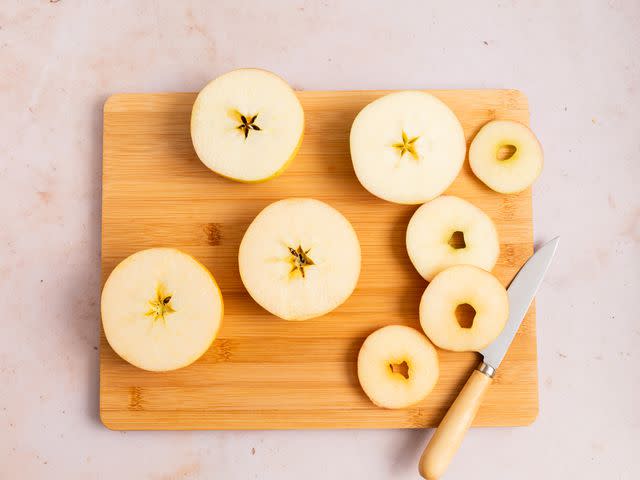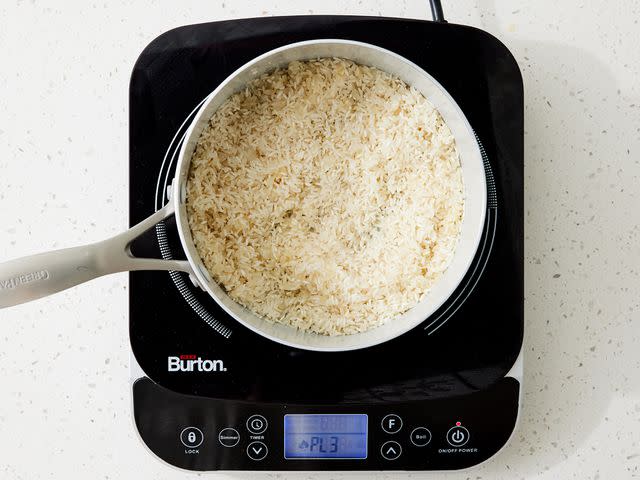PSA: These 5 Foods Have the Shortest Expiration Dates
Time to check if yours need to be tossed!

LauriPatterson/Getty Images/Allrecipes
Some foods are built to last, such as dried beans, pasta, and pickles. Others…not so much.
Foods That Go Bad Quickly
If you have any of these products in your fridge or pantry, you should probably go ahead and use them before it’s too late:
Sliced Deli Meats
Whether or not you’ve been pregnant, you may have heard advice that pregnant people (and anyone with a weakened immune system) should avoid eating deli meat. This is because deli-sliced meat is a known source of Listeria-related illnesses. The bacteria can survive even at cold temperatures in the fridge, according to the CDC, so it’s important to strictly adhere to the best-by date.
If you purchased your meat at the deli counter, you should definitely eat it within 3-5 days. If you bought pre-packaged meat, it can stay sealed in the fridge for up to two weeks (but you should eat it ASAP once the package has been opened).

Cut Fruits and Vegetables
Cutting or slicing your fruits and vegetables ahead of time is a great way to get a jump start on certain recipes. However, peels and skins exist for a reason: Once the flesh hits the air, the produce starts to deteriorate much more quickly.
Just how quickly depends on the fruit or vegetable. There are ways to prolong their life a bit (such as tossing them in lemon or lime juice), but don’t forget the clock starts ticking as soon as the interior is exposed.

ALLRECIPES / ANA CADENA
Cooked Rice
Uncooked rice, depending on the variety and packaging, can keep up for 10 years in the pantry. But it’s a different story once the rice is cooked. Rice contains a bacteria called B. Cereus, which contains extremely heat-resistant spores that may survive cooking. When left at room temperature, it can multiply and cause food poisoning (it’s called fried rice syndrome).
Cooked rice should last 3-4 days in the fridge, but it’s important to reheat it thoroughly in the microwave after only 24 hours.

Dotdash Meredith Food Studios
Lettuce
While whole heads of lettuce can last for weeks, loose leaf lettuce will go bad much more rapidly. Since lettuce has a very high water content, it deteriorates quite quickly compared to other produce—especially after it has been picked from the head. Loose leaf lettuce should last for about a week in the fridge (when stored properly), but use it within 2-3 days after it has been chopped or shredded.

Allrecipes Magazine
Fish
Fresh fish has a shorter shelf-life than other meats because the bacteria on fish is used to living in the water. Deep ocean water is only a few degrees above freezing and surface water, in most conditions, doesn’t get much hotter than about 70 degrees F.
Chicken, pigs, and cattle (and the bacteria that live on them) are perfectly fine when the temperature exceeds even 90 degrees F. In a refrigerator set to 40 degrees F or less, that bacteria is practically paralyzed—but the cold temperature-accustomed bacteria that lives on fish is able to thrive.
It’s best to use fresh fish within one or two days.

KGORA
What Causes Food to Go Bad?
Food spoilage is usually caused by the presence of bacteria or fungi such as mold and yeast. There are things you can do to slow down the spoilage process (always make sure to store your food properly!), but all foods will spoil eventually. Plus, some factors are beyond your control. Here are some reasons food may go bad:
Time: Again, all food will spoil at some point. Some products (such as fresh produce) will spoil more quickly than others (such as processed foods and canned goods).
Air: Ever wonder why you’re supposed to store many foods in airtight containers? That’s because as soon as air hits certain foods, oxidation starts occurring.
Temperature: Bacteria grows more rapidly at higher temperatures—that’s why the fridge or freezer is necessary for certain foods.
Read the original article on All Recipes.






